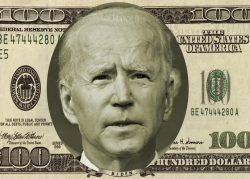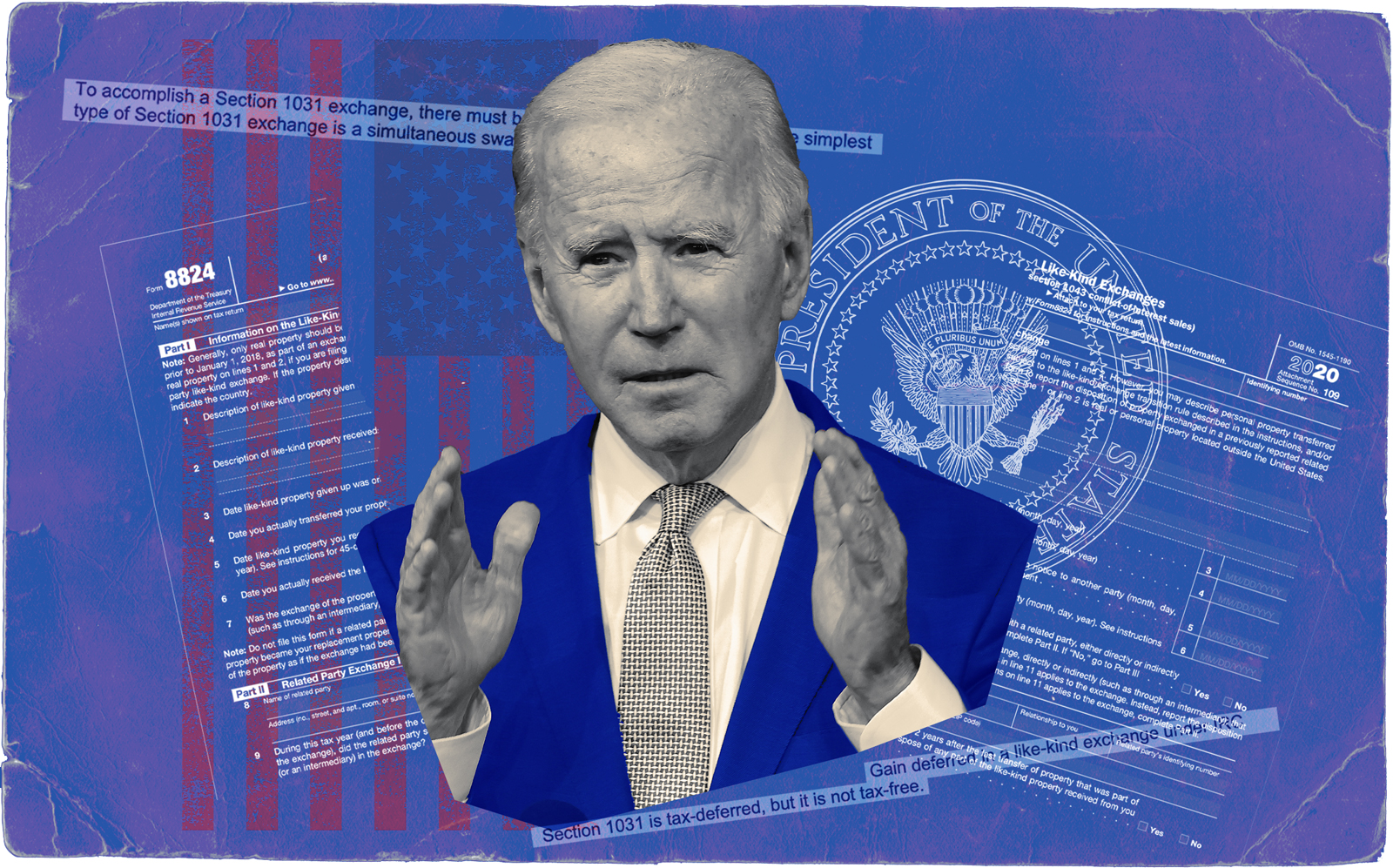With one exception, real estate is not in Joe Biden’s immediate agenda. But within the next few months, the industry will have a fight on its hands — and a few things to cheer.
As Biden is sworn in today as the nation’s 46th president, his focus is on ending the pandemic. That’s good news for real estate, with the aforementioned exception: his proposal to continue the nationwide residential eviction moratorium until September.
Biden wants to end other measures, notably tax breaks that real estate executives have come to view as a birthright even though some have not been around that long — certainly not as long as the new president.
Read more


One favorite, the 1031 exchange, was born in 1954, a dozen years after Biden. The original provision let sellers avoid capital gains taxes by immediately spending the proceeds on another property purchase. But 1031 exchanges didn’t come into widespread use until court decisions in 1979 gave sellers time to reinvest and still get the tax break.
Since then they have become second nature in real estate. Pay taxes on reinvested gains? Unthinkable. As the late Leona Helmsley famously said, “We don’t pay taxes. Only the little people pay taxes.”
But Biden sees himself as a champion of the little people — although for him, “little” seems to mean anyone making less than $400,000. Hence, only earners above that threshold would lose their 1031 privileges, should Biden get his way.
Although industry players say that would cause them to hoard cash rather than bolster the sagging economy by investing, Biden appears to believe they will keep doing, well, what real estate people do.
In any case, they could still postpone or eliminate paying capital gains taxes by investing in Opportunity Zones, created by the Republicans’ 2017 tax reform. All Biden seems inclined to do there is require disclosures to gauge whether the zones really help residents of underprivileged neighborhoods, which is the ostensible rationale for the program.
Such a determination could take years. And the gerrymandering of the zones to include non-poor areas such as Long Island City appears to be safe.
For people earning $1 million or more, Biden wants to tax capital gains and dividends at the same rate as regular income. That would cost wealthy REIT shareholders and sellers of property and a lot of money, but would not be unprecedented. Income and capital gains tax rates were equal from 1988 through 1990, and dividends got equal tax treatment until the Bush tax cuts of 2003.
Biden wants to raise some taxes to address wealth inequality and offset some of his spending. The 2017 tax reform lets an individual pass $11.7 million to heirs tax-free, up from $5.5 million pre-Trump and $675,000 when George W. Bush took office in 2001. A married couple can bequeath $23.4 million with nary a dime going to Uncle Sam.
It would be hard to find a faster expansion of a tax exemption or clearer protector of wealth inequality, and Biden aims to roll it back — meaning more wealthy families would have to sell property when an owner dies. If he fails, the tax would revert to 2017 levels in 2026.
Another archaic, wealth-protecting tax policy targeted by Biden is the stepped-up basis, which wipes out (on paper) capital gains of property when it is inherited. That allows families to pass real estate from generation to generation, with the ultimate seller paying as little as zero tax — or even taking a deduction, if it sells for less than it was worth when last inherited.
The policy provides a tax benefit when people hold property until they die, which exacerbates the housing shortage by keeping large dwellings from being used by families. By encouraging sales, ending the step-up basis would benefit brokers, as would a $15,000 tax credit proposed by Biden for anyone buying a home after not owning one for three years.
Developers could benefit from another Biden priority: reinstatement of a rule requiring localities to explain how they are furthering affordable housing. That could lead to opportunities to build multifamily housing in suburbs where for years it has been difficult to build much of anything.
Some suburbs have resisted apartment construction for ages, despite laws and court rulings demanding they accommodate a bare minimum of affordable housing. In one classic example, a Connecticut town rejected a proposal to build 12 dwellings on 2.2 acres as “ghettoizing Westport,” as one planning commissioner called it. But Biden’s vote advantage over Donald Trump in the ’burbs suggests a more welcoming attitude might prevail.
At least one staple of real estate, depreciation, is not on Biden’s radar, although Congress could begin to wonder why property owners can file tax returns claiming their buildings decline in value when in the real world they go up.
